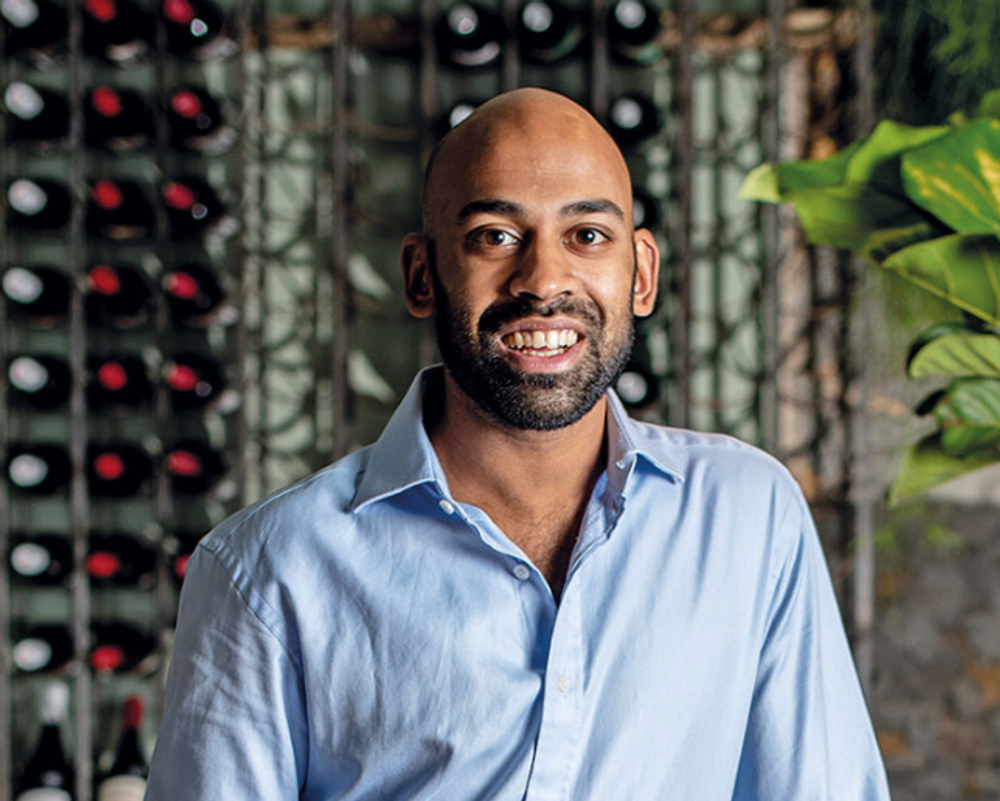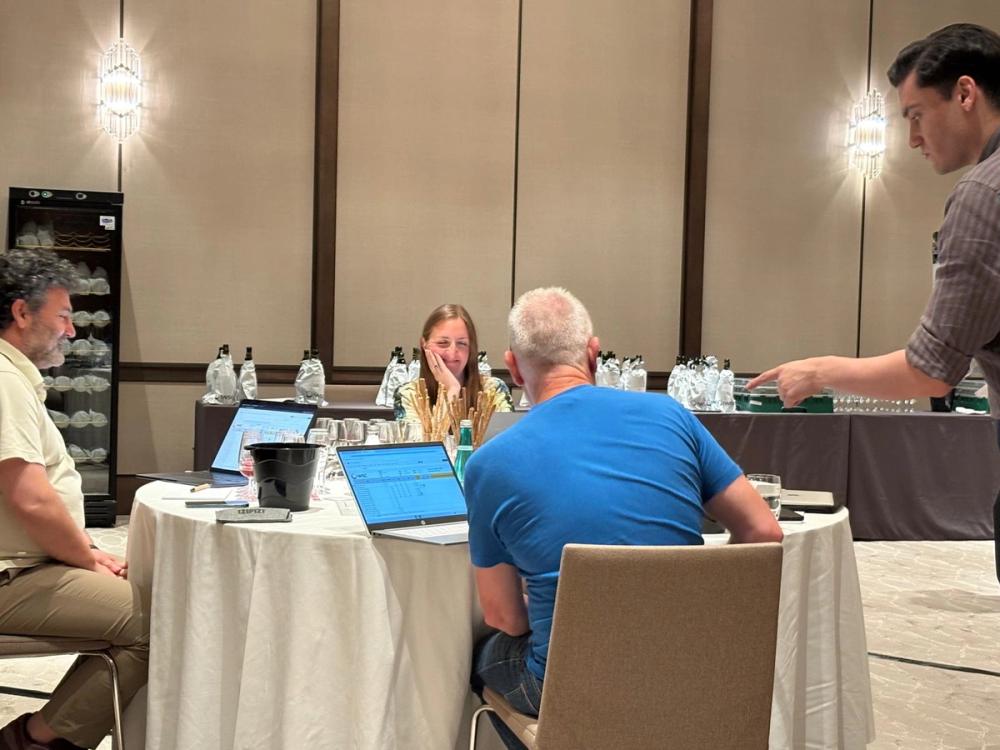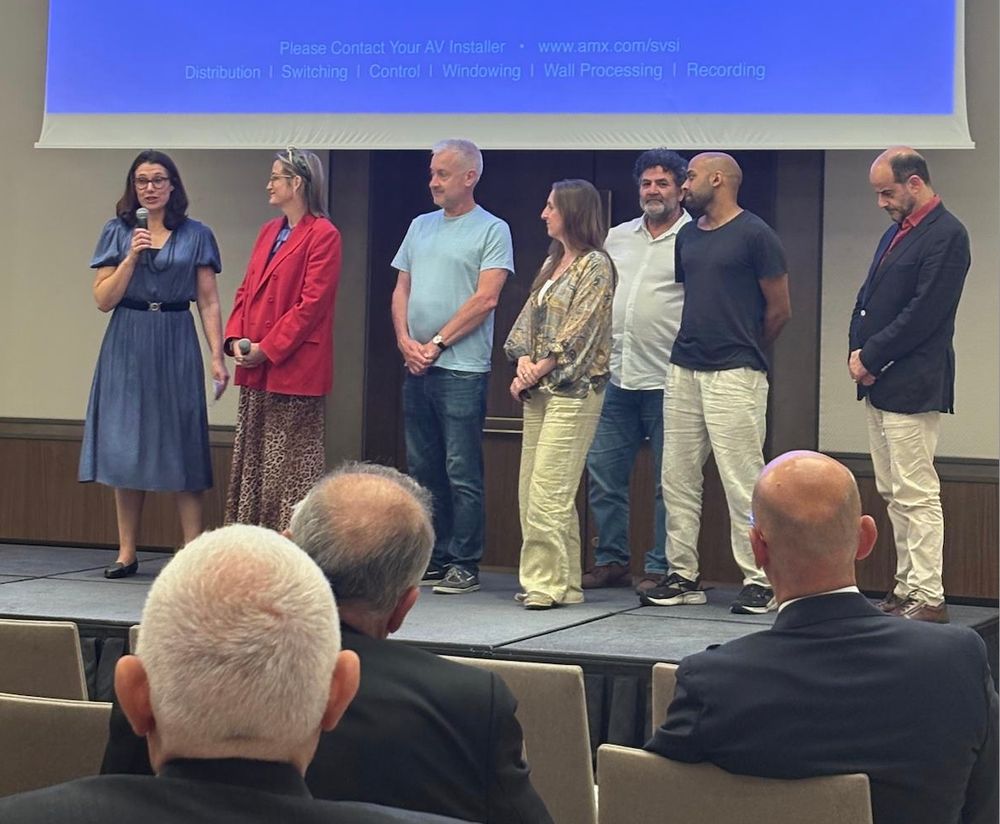Turkey may not be on every buyer’s wine radar, yet with a rich history of wine making and archaeological evidence of grape cultivation dating back more than 7,000 years in Anatolia it’s surprising that they aren’t a more prominent feature on our lists.
Turkey straddles the cultural divide between East and West in more ways than just wine. Secular since 1928, Turkey is not a dry country, yet just 12 years ago the advertising and promotion of alcoholic beverages was banned. Turkey sat on a political and religious precipice and drinks conglomerate Diageo got caught up in it when their market leading spirit brand and Yeni Raki faced fines of up to £33m as a result. So where does that leave wine in 2025?
I had the privilege of being invited to IWSC’s global judging in Turkey last year. It served as an eye-opening snapshot into Turkish food and wine culture as we deep dived into their literal thousands of indigenous grape varieties.

Sunny Hodge says the IWS judges were particularly impressed by how fair Turkish wines have come in the last couple of years
Turkey is positioned as a bridge to the West, and their wine production followed suit. Intelligent plantings of Sauvignon Blanc, Semillon and Gamay vines are now over 100 years old, and plantings of Cabernet Franc, Syrah and Merlot are thriving in Eastern Thrace. I uncovered a domestic penchant for fuller bodied reds which meant a huge amount of Cabernet Sauvignon – Merlot blends found themselves on shelves, and white wines were somewhat dismissed by locals.
With an absence of promotions and marketing, wine producers are forced to develop strong agrotourism arms to showcase the quality of what they do. Despite this one hand tied firmly behind their backs and the associated adversities Turkish wineries face, 2025’s judging results prove their wine scene continues to develop both in quality and style.
Sarah Abbott MW has led the IWSC’s crack team of judges in Turkey since they first came over in 2023. I’ve known Sarah for many years, she’s inherently caring and has strong affinity to an underdog. There’s no better characteristic combo for shining a light on regions that are all too often overlooked in a fair, consistent and rigorous methodology than her.
Joining Sarah in 2025’s crack team of judges was local legend and owner of London’s 2-Michelin starred Trivet, Isa Bal MS. Isa is the first and only Turkish Master Sommelier, a man with invaluable insight into local Turkish scene as well as in depth knowledge of indigenous varieties, regional relevance and their potential in the West.
“I think the quality is at a level now where Turkey can compete on the global wine market, I don’t see quality as an issue,” says Bal. “There’s a lot of new things they can bring to the wine market like local varieties. Turkish producers have got handicaps and aren’t very well represented on the UK market but there are some, including some of the gold medal winners which are available in the UK.”
He adds: “What doesn’t work is having just one solitary example of Turkish wine on a list. In our case at Trivet we have a sizeable amount of wines from Georgia, Greece, Armenia and Turkey and people see that as a cluster of choice from the Levant and Anatolia which works to promote them”.
He also questioned whether there was a "trend and style emerging" of Turkish wines overall. "I think the (Turkish wine) identity still needs to be established.”
Promoting local
Local grapes to keep an eye out for include:
Çal Karası {chal-ka-RA-see}, a black grape from the Çal district of the Denizli Province of western Turkey. Çal Karası was my personal take home grape from both 2024 and 2025’s judging. It’s light and juicy, red berry and cherry led, takes well to a bit of oak aging and when put together well creates wines I would liken to a fuller Beaujolais Cru style of red wine.
Boğazkere {bow-ahz-keh-reh}, translates directly as “throat burner”. As the name implies expect off the scale tannins. Locals liken this black grape to Nebbiolo. I found from this year’s entrants of Boğazkere wines both tannins and use of oak were far better managed than the year before, making them more palatable and if sold and treated like a good Nebbiolo would work incredibly well as a gastronomic pairing in a bar or restaurant setting.
Narince {nareen-jay}, a white grape that means “delicate” in Turkish. Dry styles make yellow-green coloured wines with floral notes, citrus and pineapple. The grape presents well in an array of aromatic and uplifting styles which all serve superbly for hot weather drinking.

Isa Bal, left, Cat Lomax and David Kermode get down to judging Turkish wines
Joining Sarah and Isa in 2025’s Ocean’s Eleven-esque lineup was long standing IWSC judge, presenter and journalist David Kermode, wine consultant and educator Demitri Walters MW - expert in all things Levant, and award-winning wine buyer and consultant Cat Lomax.
Lomax, who also attended the first IWSC judging in Turkey in 2023, says: “There’s been a noticeable step up in quality which surprised me within such a short space of time. Wine producers are now really understanding how to get the best out of their native varieties in particular which absolutely comes through in the glass.”
She adds: “The best Kalecik Karası had delightful, bouncy red cherry fruit notes and a lovely, moreish freshness that would make for highly enjoyable summer drinking. Made with this lighter touch, it is a variety that deserves a wider audience across the wine loving world.”
Awards' summary

IWSC chief executive, Christelle Guibert, announcing the results of the IWSC Turkish awards at a special ceremony in Istanbul
The two days of judging resulted impressively in 14 Gold, 55 Silver and just over 75 Bronze medals. Gold medals were spread largely over red wines – Merlot, Syrah and Viognier represented well for the International varieties, Öküzgözü and Boğazkere held their own in the indigenous corner.
Gold Medal winning producers include Suvla Wines, Likya Wines, Barbare Winery, Mey Icki Sanayi & Ticaret, and Startera Bagcilik Sarapcilik.
I was particulalry impressed with the Grenahce wines that were a real standout, with some phenomenal commercial styles that would work tremendously well for the UK market.
Equally there are huge opportunities for indigenous varieties with the right message. For export, they’re super drinkable, fresh, high in acidity and tend towards a lower ABV, so for a UK market, they would work well.
Sarah Abbott says it was particularly pleasing to see the big steps being taken particularly as producers face ‘huge year-on-year inflationary increases which makes it near impossible to predict trends and domestic demand”.
“Their next step is for wineries to rally together to bring their quality wines to a global market,” she says.
* Sunny Hodge is a wine writer, judge and founder of London wine bars Diogenes the Dog and Aspen & Meursault. His book “The Cynics Guide to Wine” was released in April 2025.
The full results of our Global Judging in Turkey, in partnership with Tuğrul Şavkay Turkish Wines Competition, can be seen here: IWSC Wine Judging in Turkey: The Results | IWSC. The results were held in conjuction with the Tuğrul Şavkay Turkish Wines Competition.
You can read more about IWSC’s Global Judging campaign here: Global Judging | IWSC International Wine & Spirit Competition.






























